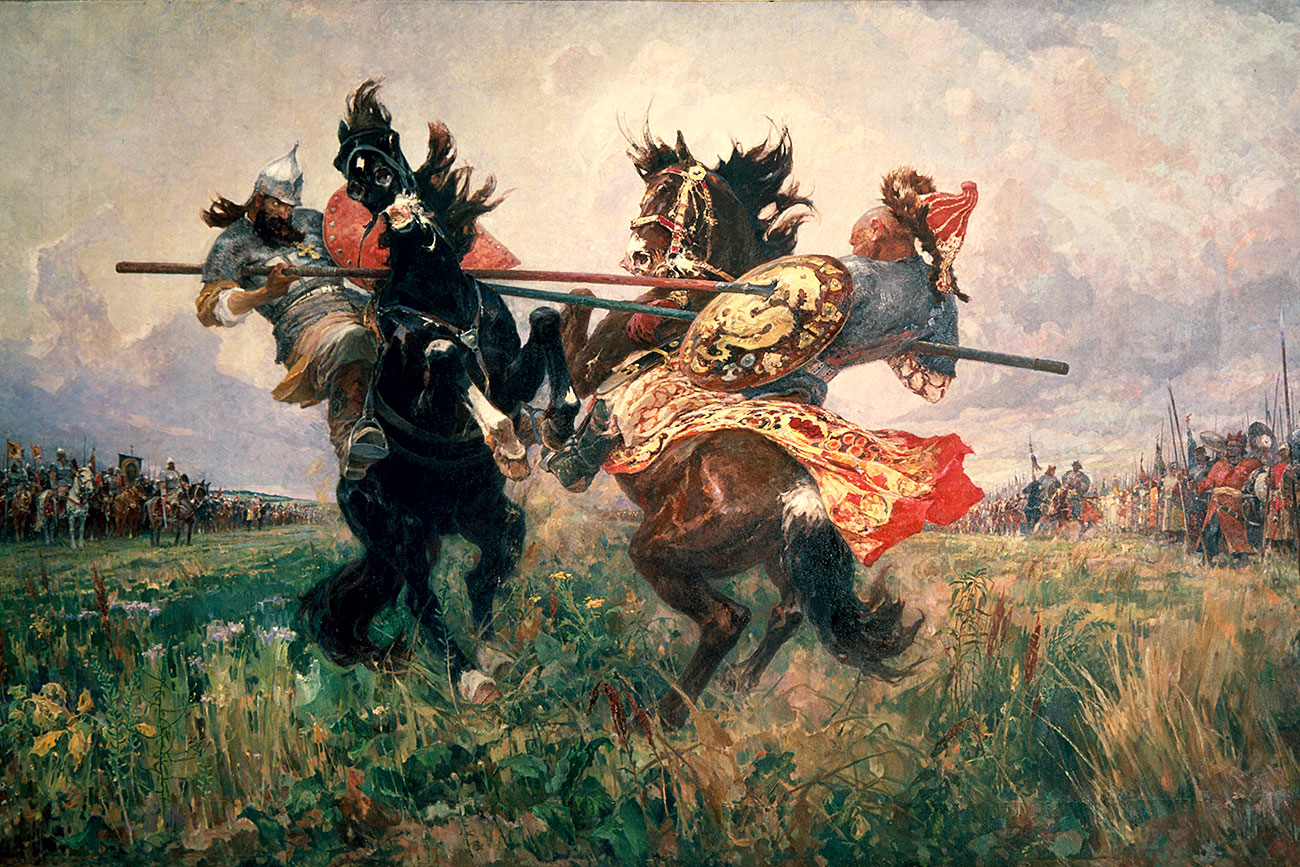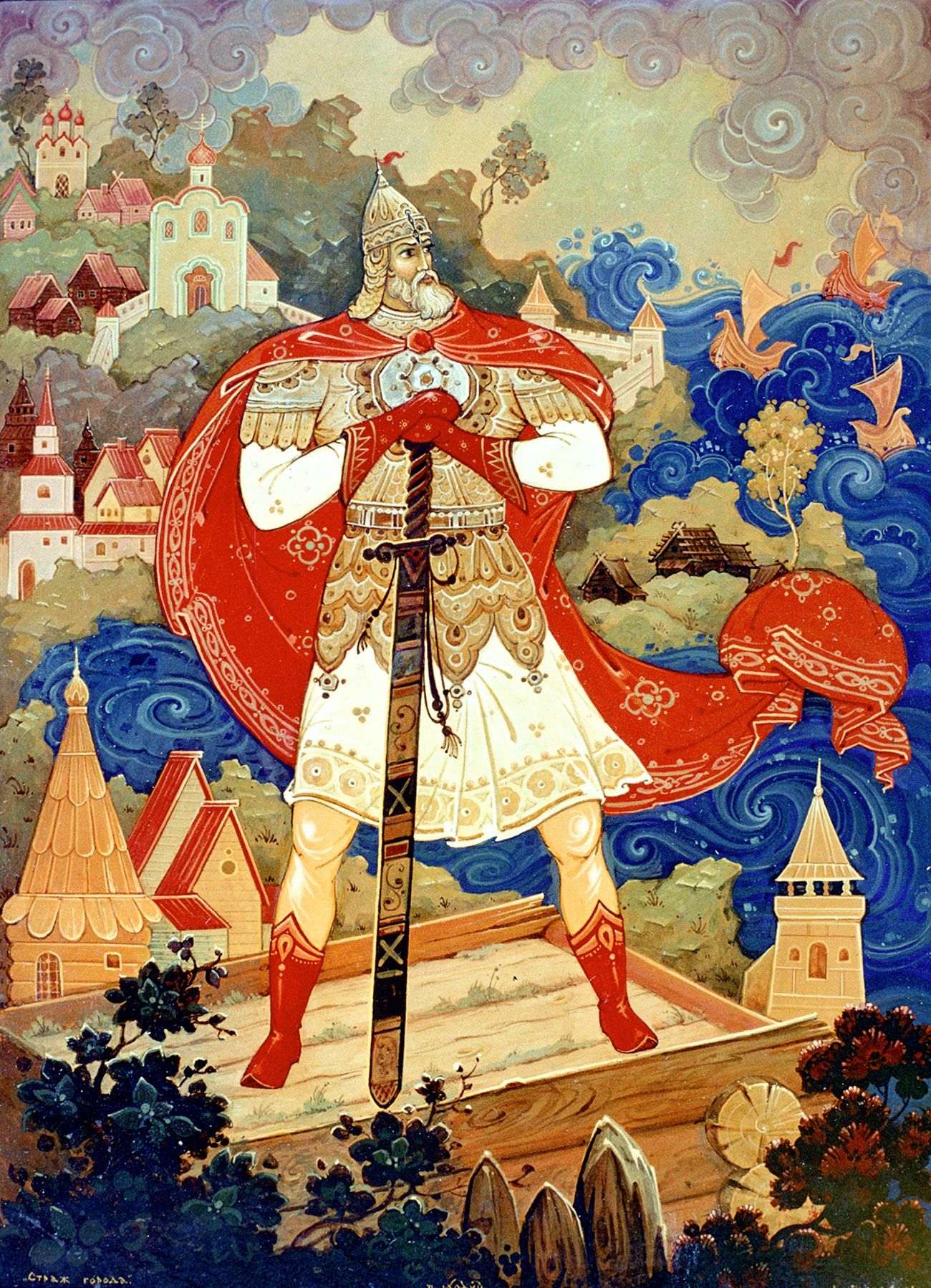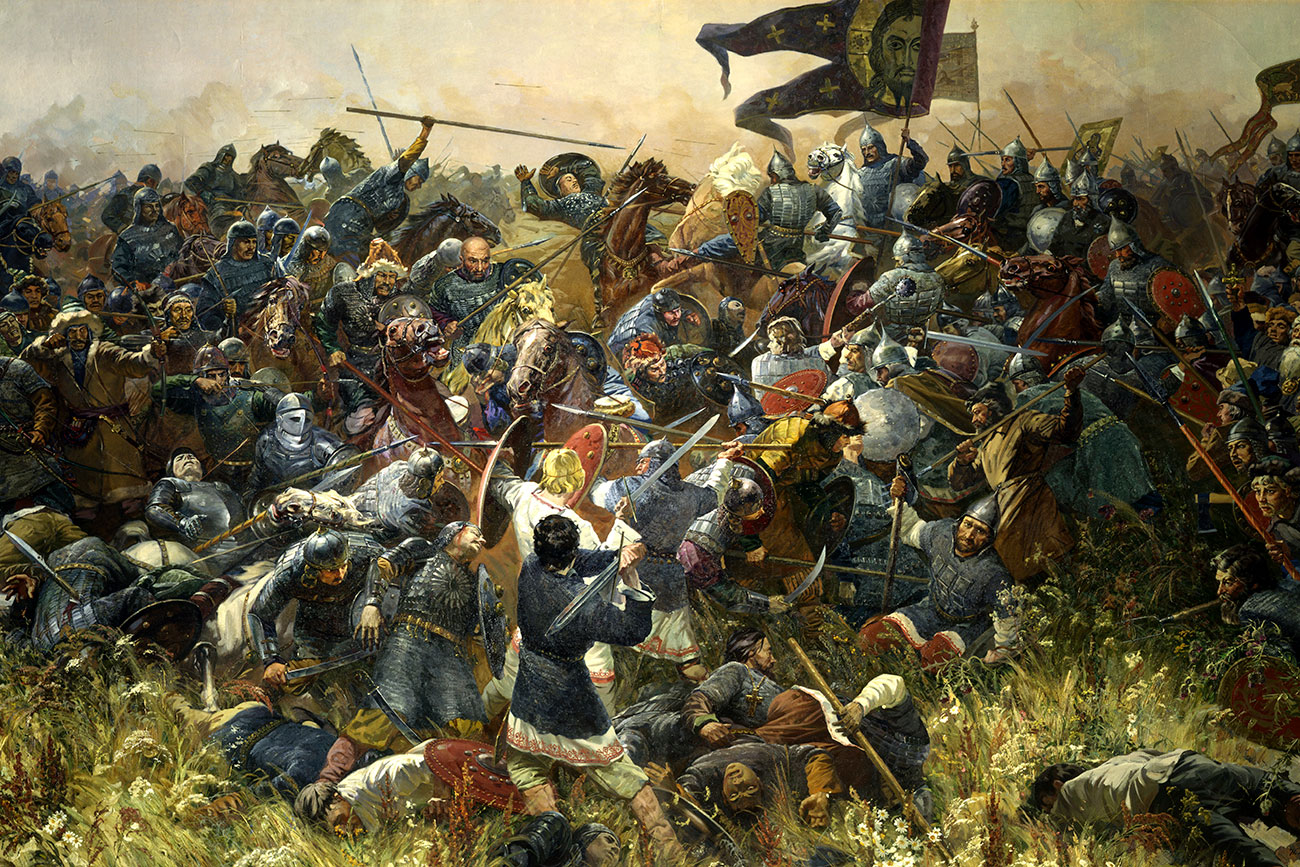
According to the legend, the duel between the two strongmen preceded the battle. Pictured: Mikhail Avilov, Single Combat on the Kulikovo Field, 1943.
Global Look Press“Russians went to Kulikovo Field as citizens of various principalities and returned as a united Russian nation” - famous Russian historian of the 20th century Lev Gumilev wrote.
In 1380, Russians from different parts of the Russian territory under the command of the Prince of Moscow Dmitry defeated the troops of Khan Mamai. He was a powerful commander and a claimant to the throne of the Golden Horde - a huge state created by the Mongols in the 13th century. Russian principalities had been reigned over by Mongolian rulers from the Horde for 150 years. They had to pay tribute and had limited sovereignty.
The brutal Mongolian invasion in the middle of the 13th century devastated Russian. However, as historian Vasily Klyuchevsky put it, by 1380 time had subdued the memory of terror - two generations had grown up without experiencing the horrors of the invasion.
As with many events from the distant past there is some uncertainty hovering over the Battle of Kulikovo, with many historians debating what actually happened - and its significance. The mainstream approach claims that at Kulikovo Field, Russia - for the first time in 150 years - fought against the Mongolian invaders, marking the beginning of the national liberation process.
 Prince Dmitry, picture by P. Mtyashin; Dmitry and his army defeated Mamai's troops in 1380 at the Battle of Kulikovo / Yuriy Kaver/Global Look PressHistorian Sergey Solovyev believes the battle has even more significance. He says it was “a sign of triumph of Europe over Asia” and compares it to the epic battle of the Catalaunian Plains when in 451 the Romans and Visigoths defeated Atilla’s Huns.
Prince Dmitry, picture by P. Mtyashin; Dmitry and his army defeated Mamai's troops in 1380 at the Battle of Kulikovo / Yuriy Kaver/Global Look PressHistorian Sergey Solovyev believes the battle has even more significance. He says it was “a sign of triumph of Europe over Asia” and compares it to the epic battle of the Catalaunian Plains when in 451 the Romans and Visigoths defeated Atilla’s Huns.
There is also a view that Prince Dmitry didn’t want to challenge the Mongols’ suzerainty over Russian principalities. “His main goal was not an overthrow of the Yoke, how it is traditionally perceived (which was not achieved, since Russia was subjugated to the Horde for 100 further years).
“He wanted to bring the title of the Grand Prince of Vladimir (it gave the city the status of the main Russian principality) to Moscow on a permanent basis”, historian Anton Gorsky argued. Before Dmitry’s rule it was the Horde who chose the main Russian principality. In the spirit of this approach Dmitry fought with Mamai because the latter did not want to give the title to Moscow’s ruler. Dmitry’s victory made this title a hereditary possession of Moscow’s future princes, thus making Moscow principality a major entity in the Russian territory.
 Sergey Prisekin, The Battle of Kulikovo, 1980. / Global Look PressHistorians also argue about the exact location of the battle and how it played out. The common held view is that Prince Dmitry outmaneuvered his enemy at Kulikovo Field, making it impossible for Mamai’s allies - the Lithuanian prince and the head of Russia’s Ryazan principality - to unite their forces with the Mongolians. As a result, Dmitry only had to face Mamai’s troops after he crossed the Don River.
Sergey Prisekin, The Battle of Kulikovo, 1980. / Global Look PressHistorians also argue about the exact location of the battle and how it played out. The common held view is that Prince Dmitry outmaneuvered his enemy at Kulikovo Field, making it impossible for Mamai’s allies - the Lithuanian prince and the head of Russia’s Ryazan principality - to unite their forces with the Mongolians. As a result, Dmitry only had to face Mamai’s troops after he crossed the Don River.
A ferocious battle followed, with tens of thousands of soldiers on each side. The Mongols were assisted by Genoese infantry from Crimea and Mamai managed to break the Russian ranks to the left and started attacking the main bulk of the Russian troops from the rear. Just as the Mongols thought they were on the brink of a historical victory, a reserve regiment (that Dmitry has positioned as backup) moved in and took the Mongols by surprise, forcing Mamai to retreat in panic. Dmitry himself has been fighting on the front line wearing the armor of one of his noblemen, and was named Donskoy after that victory.
According to Lev Gumilev, the Battle of Kulikovo was more than a fight for territory - it was about protecting culture and traditions. He says Mamai embodied the threat from both Islamism (Mongols) and Catholicism (Genovese and Lithuanians).
The victory at Kulikovo Field provided Russia with the foundation for unification throughout the ages. The battle changed Russia. “Because of the act of valor and self-sacrifice, Moscow rose up against the Horde and its allies”, Gumilev wrote, adding that the battle changed the way people thought; they started to perceive themselves as an entity, as Russia.
100 years later, in 1480, Dmitry’s descendent Ivan III, who is credited with creating the centralized Russian state, put Mongolia’s domination over Russia to bed. As chronicles say, he did it with the memory of the Battle of Kulikovo in mind.
If using any of Russia Beyond's content, partly or in full, always provide an active hyperlink to the original material.
Subscribe
to our newsletter!
Get the week's best stories straight to your inbox